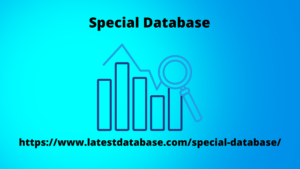World data encompasses the vast and diverse information generated globally across various sectors, including demographics, economics, health, environment, and technology. It plays a crucial role in understanding global trends, driving informed decision-making, and fostering international cooperation. This overview explores the significance of world data, its primary sources, the challenges of data collection, and its applications in shaping our world.
1. The Importance of World Data
World data is fundamental for comprehending the complexities of global phenomena. Governments, organizations, researchers, and policymakers rely on this data to analyze trends, forecast future scenarios, and implement strategies for sustainable development. For instance, demographic data helps monitor population growth and migration patterns, aiding in resource allocation and urban planning. Economic data is essential for understanding global trade, market trends, and economic stability. Environmental data is crucial for monitoring climate change, guiding efforts to mitigate its impacts. In essence, world data provides the foundation for making evidence-based decisions that address global challenges.
2. Primary Sources of World Data
World data is collected from a wide array of sources, each contributing unique insights into various aspects of life. National governments are among the primary sources, gathering data through censuses, surveys, and administrative records. International organizations, such as the United Nations (UN), World Health Organization (WHO), and World Bank, compile and disseminate global data, offering standardized metrics for comparison across countries. Academic institutions and research organizations conduct studies and surveys that provide in-depth analyses on topics ranging from public health to economic development. Additionally, non-governmental organizations (NGOs) and private sector entities contribute valuable data, especially in areas like humanitarian aid, environmental conservation, and market research.
3. Challenges in Collecting World Data
Collecting and maintaining Self-Employed Database world data presents several challenges. One of the primary issues is data accuracy and reliability, as not all countries have the same capacity for data collection. Developing countries may lack the infrastructure and resources needed to gather comprehensive and up-to-date information, leading to gaps or inconsistencies in global datasets. Standardization is another challenge; with different countries using varying methodologies and definitions, comparing data across regions can be difficult. Privacy and data protection concerns also arise, particularly with the collection of sensitive information such as health records or personal identification. Ensuring data security while maintaining transparency and accessibility is a delicate balance that data collectors must manage.
4. Applications of World Data
World data has a wide Bolivia Updated Phone Number range of applications across multiple domains. In public health, global health data enables the tracking of disease outbreaks, the effectiveness of vaccination programs, and the distribution of healthcare resources. Economic data informs trade policies, investment decisions, and strategies for poverty reduction. Environmental data is critical for climate change modeling, helping policymakers design effective mitigation and adaptation strategies. Additionally, social and demographic data inform policies related to education, employment, and social welfare, promoting inclusive and equitable growth.
5. World Data in Technology and Innovation
In the technology sector, world data drives TH Lists innovation and the development of new solutions to address global challenges. Big data analytics and artificial intelligence (AI) use vast amounts of world data to uncover patterns and generate insights. For instance, AI models analyze climate data to predict weather patterns, enabling better disaster preparedness. In the financial sector, world data is used to enhance risk assessment, detect fraud, and optimize investment strategies. The integration of world data with emerging technologies is accelerating progress in fields like healthcare, environmental conservation, and urban planning, paving the way for smarter, more sustainable solutions.
6. The Role of Open Data Initiatives
Open data initiatives play a crucial role in democratizing access to world data. Governments and organizations are increasingly adopting open data policies, making datasets publicly available to encourage transparency, innovation, and collaboration. Platforms like the World Bank Open Data, UN Data, and European Union Open Data Portal provide access to a wealth of information on various global issues. Open data empowers researchers, developers, and citizens to engage with data, create new applications, and contribute to a deeper understanding of the world’s dynamics.
7. Future Prospects of World Data
The future of world data is poised for significant advancements as technology continues to evolve. Enhanced data collection methods, such as satellite imagery, remote sensing, and Internet of Things (IoT) devices, are expanding the scope and precision of global data. Machine learning and advanced analytics are providing more sophisticated tools for interpreting complex datasets, uncovering new insights into global challenges. Furthermore, the growing emphasis on data privacy and ethical considerations is shaping the future landscape of data collection and use, ensuring that world data contributes positively to society while protecting individual rights.
Conclusion
World data is a vital resource that underpins our understanding of global dynamics. It informs decision-making across various sectors, from public health to economic development and environmental conservation. Despite challenges in data collection and standardization, the continuous advancements in technology and open data initiatives are enhancing the accessibility and utility of world data. As we move forward, leveraging world data responsibly will be key to addressing global challenges and fostering a more informed and connected world.

